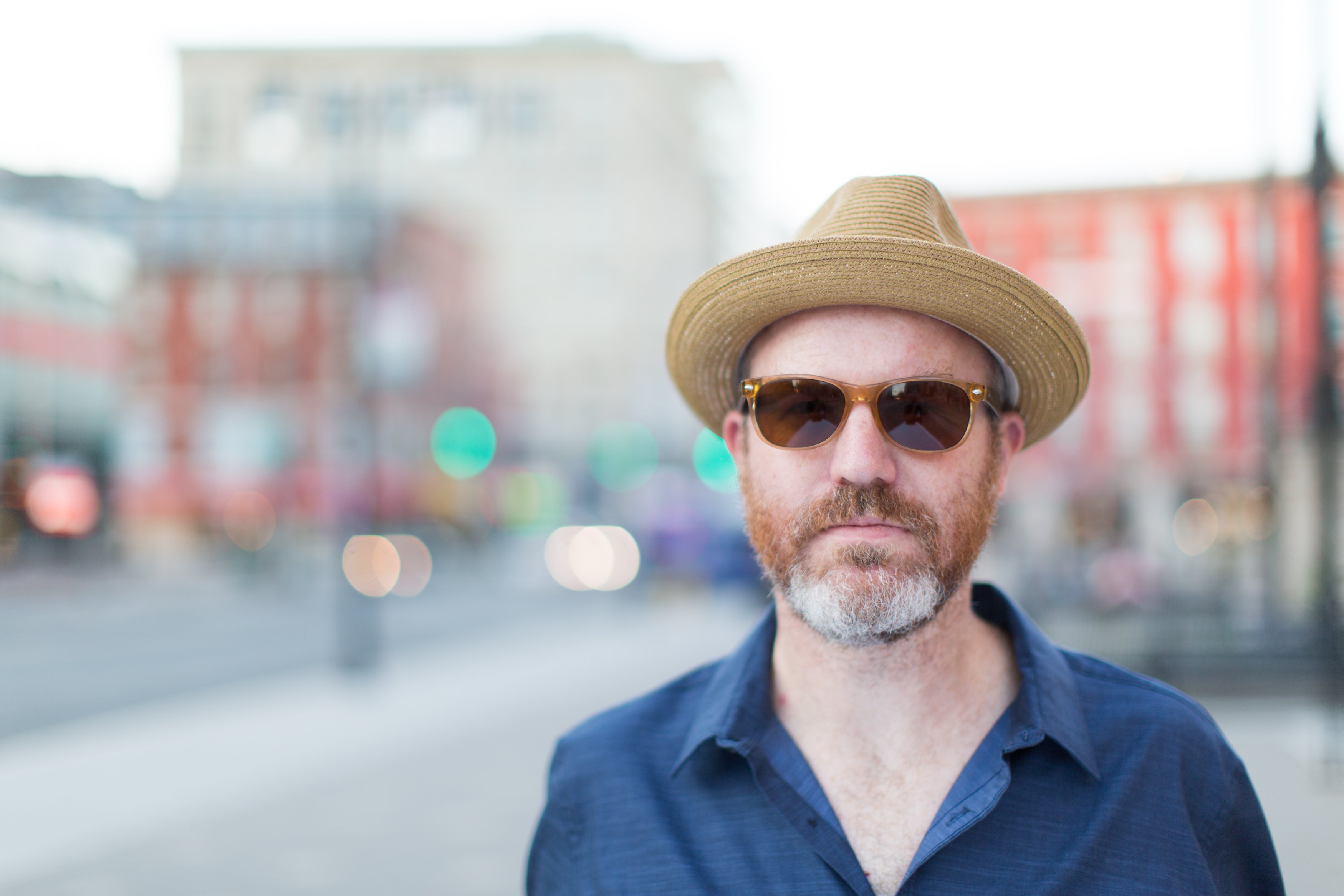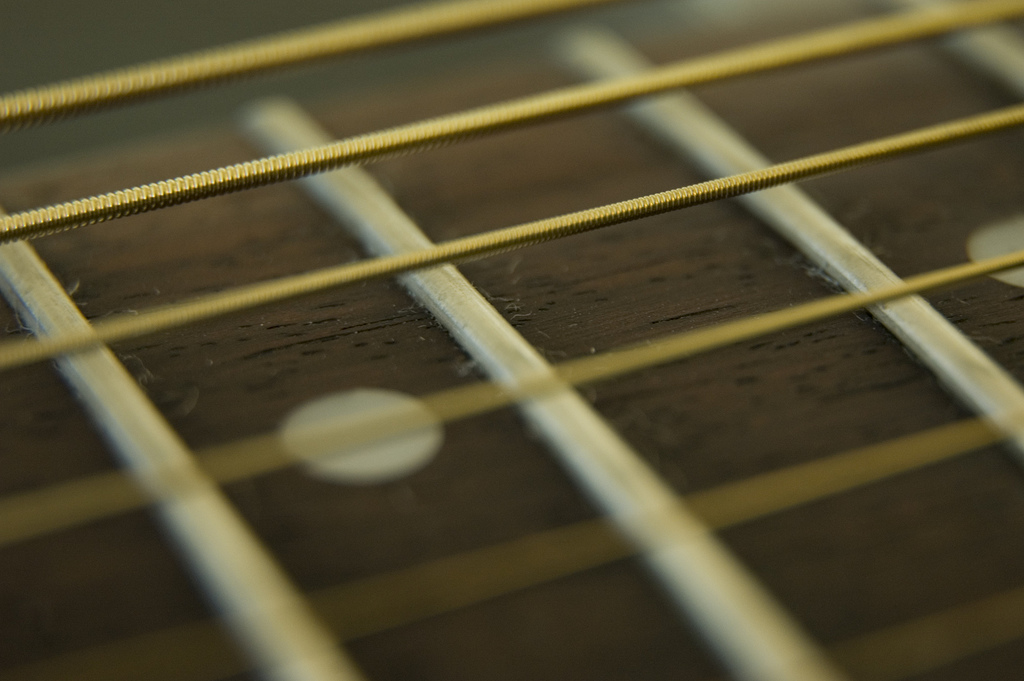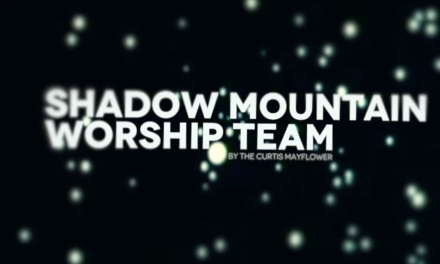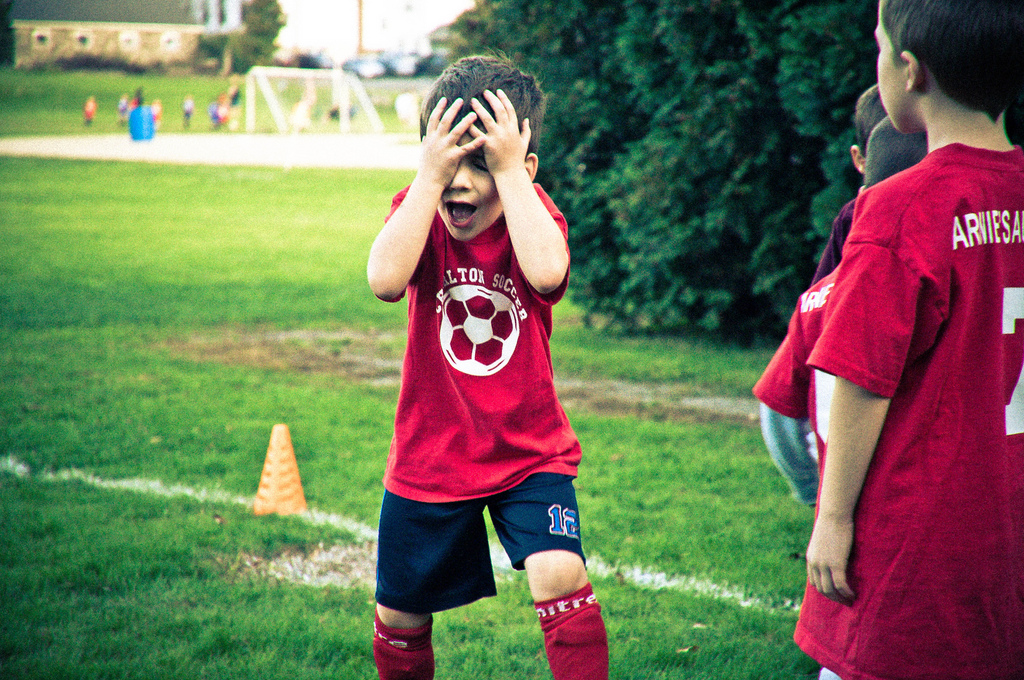You play several instruments, but you’re known as a drummer. What initially drew you to the drums? Music was just something that was around our house growing up. My dad, Al, played music professionally. My mother is a huge fan of music, so we were always listening and enjoying it. My uncle, Russ, is also a drummer, music was just everywhere. My sister, Charlene, and I would bang on couch cushions and the organ or piano in the living room and make up songs. She started to take up the drums and guitar, but couldn’t play both at the same time. She would insist that I play the drums with her guitar and showed me what she knew. Which was also to play “incorrectly,” playing the hi-hat with my left hand, which I still do.
Who or what has had the biggest influence in shaping your music style? I get very inspired by music and I tend to obsess about it. I try to let everything influence me and let it all go when it comes time to create. One moment that had an influence in recent years was spending some time with Levon Helm at his studio in Woodstock, shortly before he died. Being around a person who had lived such a full life in music, and also left a huge mark on this musical world I love, was one of the most impactful things I’ve ever experienced. In addition to his wonderful playing, singing and writing, the pure joy that he possessed while playing changed my life. I sat behind him during his entire set, his playing was soulful and wonderful. I’m still trying to find my musical style, I hope I never do.
You’ve been playing out for years, 20 plus? How has Worcester’s music scene evolved in that time? I started playing in Worcester in the early 90s, when the Worcester Artists Group was happening. Everything at that point was incredibly exciting, of course. My friends all played music or went to go see music. It was just as much fun to play as it was to be out. I worked at a record store, I went to record stores and I went to a lot of shows. The Espresso Bar opened and catered to the all ages crowd, The Space was open, Tammany was 18-plus, there just seemed to be a lot going on. The bigger Worcester rock clubs at the time – Ralph’s, Sir Morgan’s Cove, Plantation Club- were places I aspired to play at. I knew all about the local music scene from reading “Worcester Magazine,” “Phoenix” and hearing my father talk about it. You needed to be able to bring an audience or catch a break to get in. It all felt very important to me. I can’t speak to how the scene is for younger people now. I suspect that it’s all still happening, but in different forms in different spaces. Creative people are always going to create and people are always going to want to be around that sort of thing. I can’t say how an entire music scene is evolving now. I am still hearing great music coming from this area. So that’s good.
The Curtis Mayflower is performing you’re playing “Clockwork Hearts.” What are you thinking as you drum? That song begins with an arpeggio that Brooks (Milgate) plays and it sets the mood for how that song is going to feel. There’s a vocal that leads the band into the song and from there I’m usually not thinking about much. I often just enjoy what everyone is doing in the group, or I listen to an individual part, or to the song as a whole. I just try to be a listener. I know that if I’ve spent too much time thinking at a show, then I probably wasn’t very good.
How many days a week do you play-out and how do you balance that with family life and work? I have boys that are 2 years old and 7 months old, and I like spending as much time with them as I can. I work in my home studio a lot, usually late at night. I probably do about six to 10 shows a month. My focus over these past few years has been to work on original projects both in the studio and live. It takes some coordination but my wife, Annie, is also a musician and we work together to make sure that it all works out. It’s great when we can bring the boys to shows. This summer we were in Vermont for the Tweed River Music Festival. I performed on Friday, but for the rest of the weekend it was just a great time with family and friends, enjoying music.
What does music mean to you today? Every day of my life, for as long as can recall, I’ve been thinking about music, listening to music and pondering music. I don’t know that I care to figure out why I love music so much. I love the way that it makes me feel to hear a great song, or to watch musicians play a great song. Isn’t it strange that humans make music for each other? What does it all mean, Steven, you tell me.
Has it changed over the years? It has changed in the sense that I’ve come to realize that the whole world doesn’t revolve around music the way I hoped and thought that it had. My family is more important to me than anything. In a way it has been liberating and has changed my perspective and probably made me a better musician. For better or worse, music has led me to everything that I feel is important in life. Family, art, passion, politics, friendship, it’s all in music.
You’ve worked with a multitude of musicians over the years, pulling together different personalities and sounds on a weekly basis. What were some of the more noteworthy or unexpected collaborations? I’ve always thought of myself as a band guy. I like playing with people who I can get to know and then have a musical conversation with. Knowing Roger Lavallee, who is as talented a recording engineer as he is a songwriter, has been a true musical blessing. He has pulled me into many recording projects, and I am forever grateful for those opportunities to record. I first started performing with other musicians as a result of the Green Street Music Series I helped organize. It was one of the first times that I was able to play different styles of music with different musicians. It was incredibly challenging and rewarding. This led to many things and it would be difficult to mention them all. Performing with the author and musician Jim Carroll was a huge highlight. Working with the wonderfully talented singer Shana Morrison has also been a great pleasure. The Curtain Society has also backed up Mark Burgess from The Chameleons UK who has been an idol of ours forever. The Dive Bar Thursday series was also like this. Scott Ricciuti & Pistol Whipped formed from these collaborations. Big Eyed Rabbit, Beg Scream & Shout!, The Church of The Howl and The Curtis Mayflower are just a few of the bands that came out of these nights. We have written and released original music and performed many times with all these bands and I’m hugely proud of that. Working on projects with songwriters like Sam Jamesand James Keyes has been very fun as well. One collaboration I am very fond of is with Craig Rawding. Craig and I have performed together for years and he is the singer in The Curtis Mayflower. Around the time we started that band, Scott Ricciuti died. I had been writing music that was intended for Scott. I played these songs for Craig and we decided to record an album. We called the project The Marshall Pass and released it. I played all of the instruments and wrote all the music and Craig took these ideas and really made them something special with his lyrics and voice. I produced the album in my home studio.
Best show of your musical career? That’s so hard to say, I wish I could give you a straight answer. When I think of pure joy while playing, I think of Scott Ricciuti.
Anybody who’s a live music fan in and around the city knows or knows of you. What’s one thing that most people don’t know about you? I’m essentially self-taught in everything creative that I do. In additional to being a musicians, I am a graphic designer and video editor. I’ve been doing that for over 15 years professionally and design a lot of things for the musical projects I’m involved in.
(via worcestermag.com/2015/09/03/two-minutes-with-duncan-arsenault/35996)





